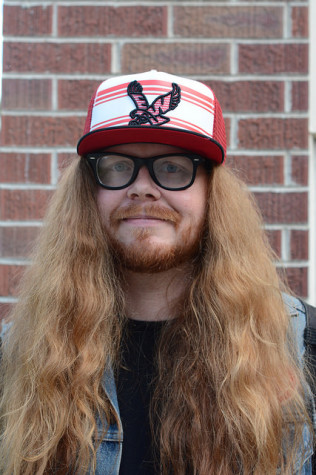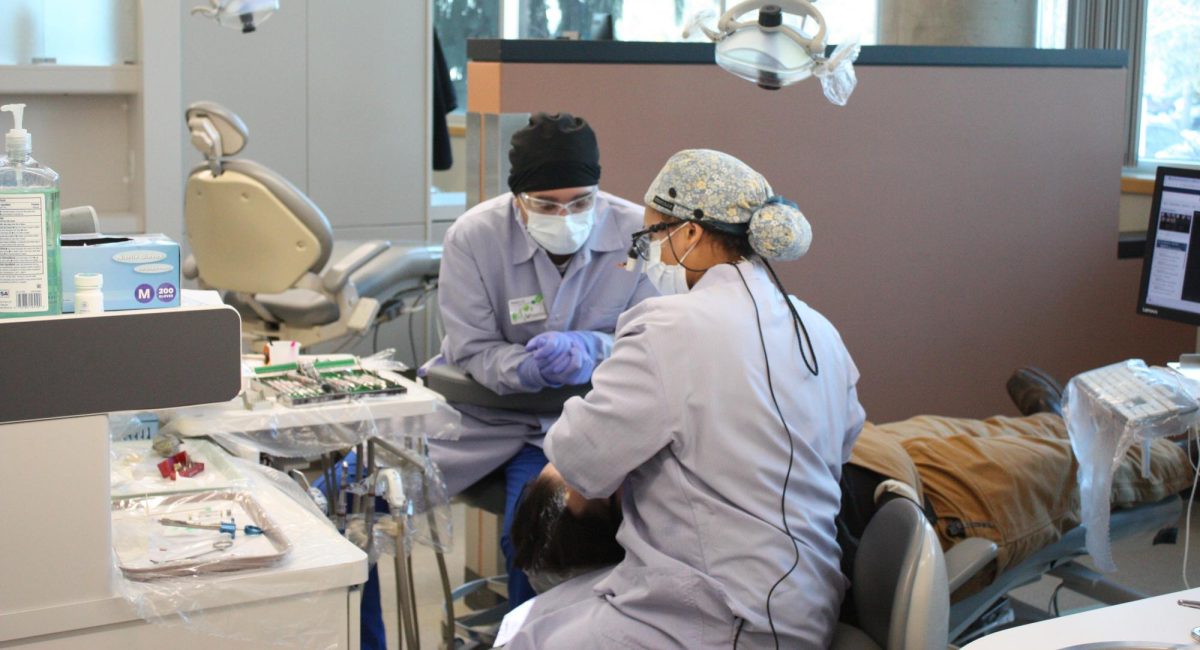ALEKS lowers pressure on struggling students
March 9, 2015
I am bad at math. At least, I spent most of my life thinking I was, until I found something that works for me.
Assessment and LEarning in Knowledge Spaces, or ALEKS, is a web-based assessment and learning program that EWU has been using since 2012 for students, like me, who have had bad luck in lecture-style math classes.
At age 32, I still add and subtract on my fingers. My jaw drops down as my eyes roll upward when I do math in my head. And when there are any decimals at all, I have to bust out the calculator or iPhone.
I decided to go back to college when I was 26, knowing I would struggle with math. I tested low and had to pass a few basic classes before I could progress to the college classes.
I tried a lecture class at Spokane Falls Community College and dropped it after three days. I could not handle the pace. Just like middle school and high school, by the time I fully understood a concept, I was already days behind the rest of the class, leaving me feeling discouraged and stupid.
Feeling stupid is not beneficial to my learning. So, I transferred to the SFCC math center, which was the best method I had found at that point. It was self-paced, with exams scheduled by progress points, not by specific dates.
I hit a wall in my learning though, and at the same time, reached my maximum number of credits for the institution. I transferred to EWU without my AA degree, which is still only missing a check mark in a box labeled “algebra proficiency.”
Most degrees require at least one math class beyond algebra proficiency, a requirement that I fulfilled with Introduction to Logic, a class that uses enough quantitative reasoning to be considered “mathy.”
But, I still needed to fulfill the algebra efficiency requirement.
Due to my fear of failing and losing the oh-so-crucial funding that allows me to work bare minimum hours at my other occupation, delivering Chinese food (I use my iPhone calculator a lot for this. Customers expect to get accurate change back.), I put math off until the very end of college.
Finally, it is my second to last quarter , I finally enrolled in Math 104, the last class in the series meant to prepare students for college-level math. For the first few weeks, I did well in the lecture class. I understood most of the material and kept up on my homework.
Then the first exam came: 50 minutes, 15 questions. I did not need to be a mathematician to figure out that I would have barely over 3 minutes to solve each question. After staring at the first question for over 5 minutes, I moved on, answering the problems and moving on.
After 50 minutes, I had barely finished half the test. My instructor told me he “saw my eyes spinning.” That old stupid feeling washed over me again
A couple weeks earlier, he told us about ALEKS and said that after the first exam, if we were struggling, it may be a good option.
I had a meeting with him about it, dropped the class and made the switch. I could not be happier.
ALEKS has made my math experience so much better. I don’t feel the pressure of time constraints. The program gives me as many times as I need to grasp a concept, and if I get a question wrong, it doesn’t count against me. Its pie chart function takes away or adds topics to the chart as you are assessed at routine increments.
Best of all, as long as you meet all of the attendance and weekly hour requirements, students can take more than one quarter to complete each class.
Wade Neislon, a math lecturer at EWU, said there are two main reasons he likes ALEKS.
First, it honors what students already know. Once you have taken an initial assessment, ALEKS starts you at wherever you tested in. For example, if you test into Math 104 at 22 percent like I did, that means you are already 22 percent complete with the class.
“You already know it, and you don’t need to be doing that again,” said Neilson. “You need to focus on what you need to learn to be able to meet the objectives for the course. I really like that.”
Second, the ALEKS lab allows instructors like Neilson to give students the one-on-one attention they need to succeed. Neilson said it can be intimidating for a student who is struggling in a lecture class to raise their hand and ask a question. The system hasn’t only helped me; the numbers show a dramatic increase in student success over previous methods.
According to Neilson, the lecture classes at EWU from 2008 to 2009 had about a 40 percent pass rate. The system used in the 2010 to 2012 school years, where Math 103 and 104 were broken into A and B sections in one quarter, had even lower pass rates.
With ALEKS, the pass rates have increased to over 60 percent, which includes students who have taken over one quarter to pass. This means pass rates are actually higher than the numbers show, but the lowest pass rates with ALEKS is still over 60 percent.
For me, the reason it works is simple: It gives me the time to fully understand a topic before I continue. For the first time in my life, I feel like I know what I am doing with math.
I am going to pass math, and I am going to graduate.








